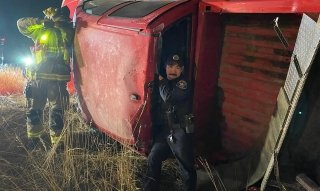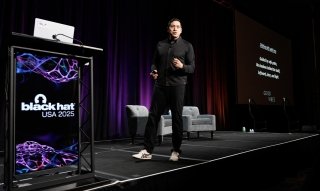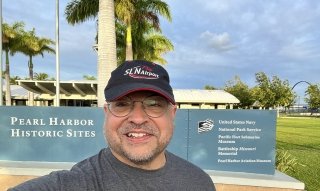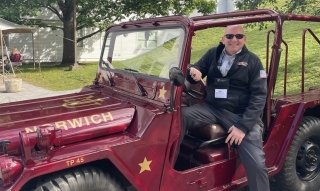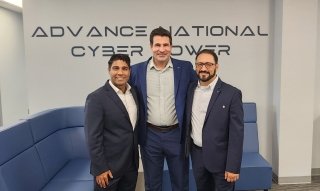William Griffin
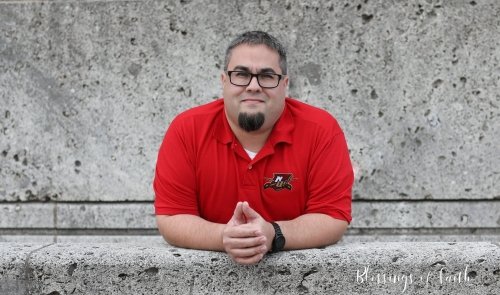
The Norwich writing center was the most valuable resource I could have ever used. They paired me with a former student who helped me rework my thought process regarding writing and get myself to the level I needed to be.
Q: “Tell us about yourself.”
A: “I am a family man, I've been married to my wife, who has also worked in education, for 13 years, and we have three wonderful children. My oldest is nine, and I have twin six-year-olds. I do woodwork as a hobby; typically, I make cutting boards and try to fish when I have a rare moment.
I am the Virtual Instructional Specialist at an alternative high school. For the last six years, I have worked with students who are in danger of failing or have already dropped out of high school, and this program is a second chance for them. In addition, this program provides online courses for students in my school district and other school districts in the state of Texas. This year I moved from being a teacher to an instructional specialist helping teachers develop online curricula and strategies to teach students online.”
Q: “What was your motivation for pursuing your degree?”
A: “I grew up in a household where history was always important. My father loved to learn about history, and that love of history was passed down to me. I have always been driven to learn something new about history. I had been teaching for about five years when I realized I didn't just want to be a High School history teacher and wanted to move on one day. I knew I needed to find a school with online learning as I thrived learning online with my undergrad. When I discovered I could get a master’s degree in military history, I knew Norwich was the school for me.”
Q: “What are your future professional plans?”
A: “Ultimately, I would like to teach at a college or University one day, to help preserve history with a museum or historical site. I would love to end up working on one of the museum ships here on the Texas Gulf Coast.”
Q: “Why did you choose Norwich?”
A: “My schedule with my family and work did not permit me to attend one of the local universities in person to work on a graduate degree. In addition, I work better in an online environment. I searched for a master's in history, and during my search, I discovered the Norwich program. I did my research on not only the programs but the university as well. After learning about the history of Norwich and its experience with online learning, I knew this was the program for me.”
Q: “Prior to beginning your courses, what were some of your expectations for an online degree program?”
A: “I knew going into these courses I was going to have to work to improve my level of writing as it had been so long since I had to write any paper. The Norwich writing center was the most valuable resource I could have ever used. They paired me with a former student who helped me rework my thought process regarding writing and get myself to the level I needed to be.”
Q: “What is one piece of advice you would give to future students enrolling in one of Norwich's online programs?”
A: “Never be afraid to ask for help, whether from your professors, fellow classmates, or university resources such as the Center for Writing. You will always receive help at Norwich.”
Q: “How do you plan to use your degree in your career?”
A: “I currently use it to help myself move into an instructional specialist from that of a teacher. From here, I plan to start working part-time for college to eventually work there full-time and move on to work in museums later on.”
Q: “What has been your biggest personal or professional success since starting your degree?”
A: “I went from being a teacher to becoming the Virtual Instructional Specialist at my school. I now lead a team of teachers who instruct students online and in person. Norwich taught me to improve my organizational skills in addition to how to work with and lead peer to peer to discussions.”
Q: “Please tell us about a time in which you could put your knowledge gained in the classroom to work immediately at your job.”
A: “The skills I learned by researching materials and writing have allowed me to help my students who have returned from dropping out of school with continuing not only their high school education but working on furthering their education.”
Q: “What aspects of your Norwich experience will you carry most strongly with you?”
A: “The critical thinking skills I learned while working on the coursework and the course discussions will always stay with me. This is why I continue to research, as now it has become fun for me.”

